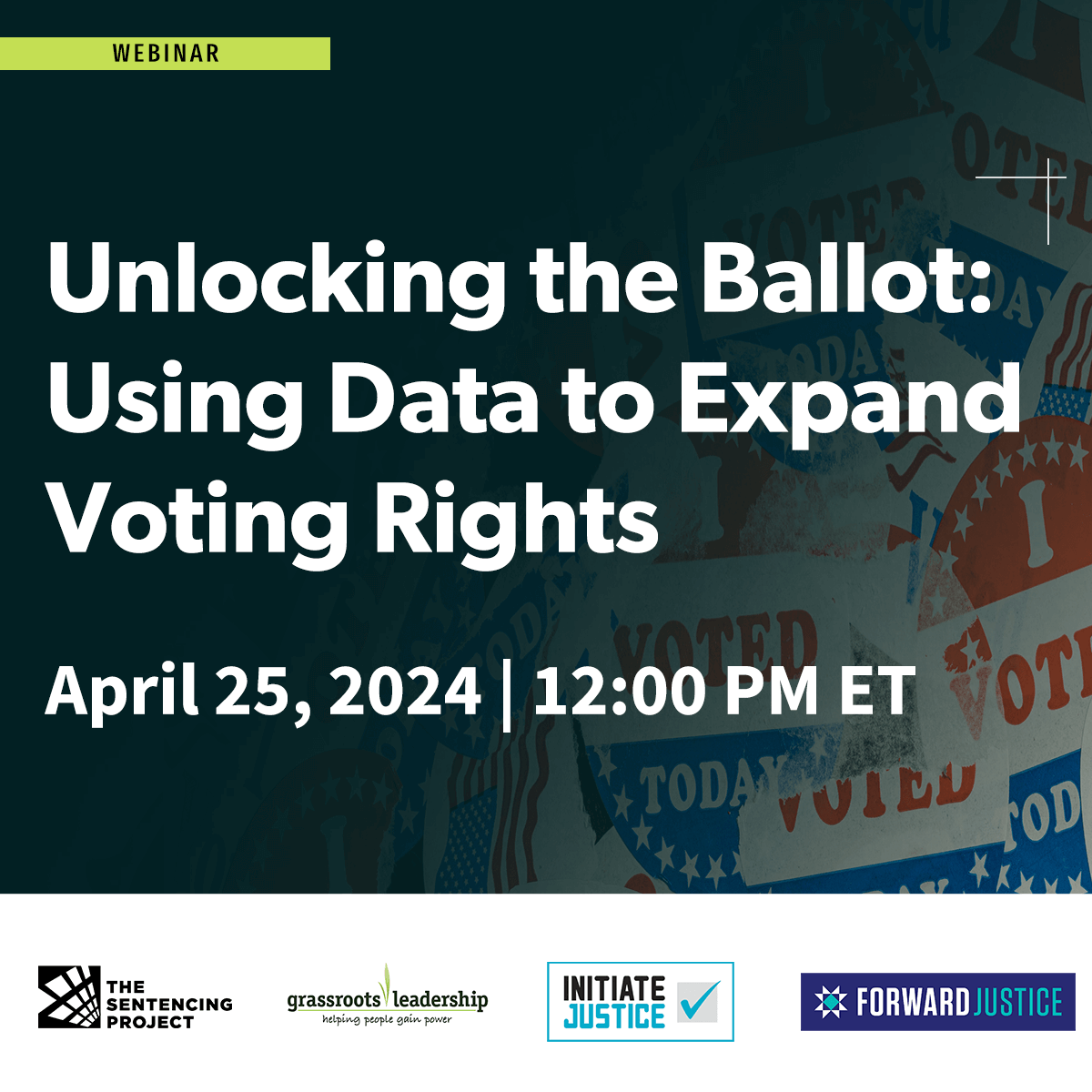Sentencing Project Webinar -Using Data to Expand Voting Rights
On Thursday April 25th 9am PT, free webinar looks at advancing voting rights campaigns

Voting eligibility and a person’s involvement in the criminal legal system have long been associated during the history of the United States. Some state laws dating back over 100 years, and motivated by racist ideology, permanently ban people convicted of a felony from voting, and almost all states have long prevented voting by people in prison. Over the last 50 years the country’s investment in mass incarceration not only staggeringly increased the prison population and the community of people with a criminal record but increased the number of people banned from voting due to a felony conviction. As a result, over 4.6 million Americans with a felony conviction were disenfranchised as of 2023, disproportionately impacting Black and Latinx residents.
However, the advocacy of incarcerated and formerly incarcerated activists, organizers, legislative champions, and others have successfully fought to pass reforms to expand voting rights to justice-impacted individuals. These changes, both administrative and legislatively in recent decades, coupled by recent modest declines in the population of incarcerated people and those under community supervision reduced the total number of people disenfranchised by 24% since reaching its peak in 2016.
2024 is shaping up to be a historic election year with debates over voting rights and criminal legal issues taking center stage. Too often not discussed and misunderstood is how people with justice system involvement are mobilizing to make their voices heard through civic engagement processes.
Presented by The Sentencing Project, Grassroots Leadership, Initiate Justice, and Forward Justice, "Unlocking the Ballot: Using Data to Expand Voting Rights" is a free webinar that will discuss how academics and advocates are using data and research to advance voting rights campaigns. The session will also look at what the data shows as effective ways to engage justice-impacted communities and emerging areas of research and will discuss how academics and advocates are using data and research to advance voting rights campaigns. Finally, discussion will explore how involvement in research campaigns is bolstering community organizing and advocacy efforts to build power and expand the franchise.
To register for this free Zoom webinar, visit this page --->> Unlocking the Ballot: Using Data to Expand Voting Rights










